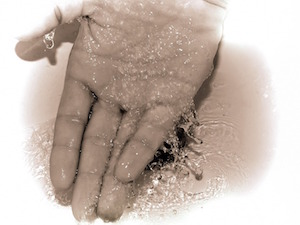The Ask Africa 2016/2017 Icon Brands Awards were presented at a stylish and exquisitely catered midday function at the The Venue, Melrose Arch. The Icon Brands Awards are designed to recognise the brands that are used most loyally by South African consumers across race and socio-economic groups.
The awards leverage off the TGI research survey, which is based on 15 000 urban interviews and measures over 8 000 brands. The approach is designed to exclude the “big brand” effect. Andrea Rademeyer, Ask Afrika CEO and founder, said the Icon Brands index is a dynamic and evolving benchmark with new categories being added this year. Nevertheless, the strenuous criteria resulted in a mere 39 brands actually qualifying for the unique Icon status.
First place was taken Sunlight Bar Soap, ahead of Coca Cola and Sunlight Washing Liquid. The remaining brands in the top 10 were, in descending order: Kiwi Shoe Polish, Koo Baked Beans All Gold Tomato Sauce, Sea Harvest, Knorr Aromat, I&J Fish Fingers and lastly Koo Tin Fruits.
This list is an interesting blend of international and homegrown brands. They are certainly all reassuringly familiar brands. They are ones which were etched in my memory in my childhood.
Trusted brands
My foodie enthusiasm may have led me to stray to the fresh fish and fruit counters, but if I were to buy tinned or frozen foods these brands would be my default choice. They are also brands in which, my domestic worker, Maria, places her trust, if I judge by the shopping lists she writes for me. The measure clearly succeeds in spanning socio-economic groups.
Rademeyer warned the audience that brand loyalty, never easy to maintain, is definitely waning in South Africa. Sarina de Beer, managing director of Ask Afrika, expanded by saying that the loyalty rates were the lowest the survey had tracked, and that Ask Afrika expected the decline to continue over the next few years.
In explanation, she pointed to the strained economic conditions which South African consumers face; inflation has outstripped wage increases for some time. Whilst consumers have to make hard choices, it was interesting to learn that South Africans do have a high propensity for the pursuit of novelty and change, based on international TGI benchmarks. Brand experimentation is an expression of this.
Financial constraints
De Beer highlighted a polarity in the market which places strain on a brand’s ability to maintain loyalty. At the financially constrained end of the market, consumers consider their shopping choices carefully, using bulk shopping, promotions and special offers to help them attempt to balance their budgets. The more comfortable consumers, on the other hand, is in a position to indulge themselves with brand experimentation. Brands need to work for them; they are likely to use loyalty cards for personal benefit.
Fortunately, De Beer offered useful advice to marketers as to how to address this challenge. Recognising the value of behavioural economics, she stressed the fact that the rational economic man or woman is a fallacy. Emotion overrides reason in consumer choices. (The Brexit vote and Trump’s capturing of the Republican party nomination are ample evidence of the current preference for feelings over facts.)
It is, therefore, essential for brand marketers to carefully plan their interactions with consumers to strengthen their connections with consumers and create authentic relationships. Loyalty needs to be reciprocated with love. Understanding the reality of consumer emotion, and adapting to it, is critical.
In a world where technology predominates, brands needed to become more “human” and consumer-centric, De Beer said. Marketers need to avoid the meaningless and, ultimately offensive, stalking of their customers via tech. Tech needs to be used to provide a more sensitive understanding of the consumer and to build authentic and beneficial communication.
Brand storytelling
Another strategy, De Beer suggested is utilising the art of the story. ‘Storytelling’ is certainly the Holy Grail of marketing discussions at the moment. It was, however, fascinating to learn about the effect it can have on consumers. Well executed storytelling prompts the brain to release oxytocin, the ‘pleasure’ or ‘love’ chemical. Apparently good storytelling can release it in the same amount as when one is hugged by a loved one. Certainly achieving an emotional reaction of that proportion could contribute to the building of a sense of loyalty for consumers.
The celebration of enduring brand success, together with useful guidance on how to tackle the challenge of waning loyalty made for a memorable event.
On a light note the two ‘goodie bags’ distributed to attendees may qualify for the heaviest of year! They did provide attendees with a remarkable opportunity to reacquaint themselves with many of the brands which garner the loyalty of South African consumers.

Britta Reid is an independent media consultant.
Image: Pixabay CC0 Public Domain














